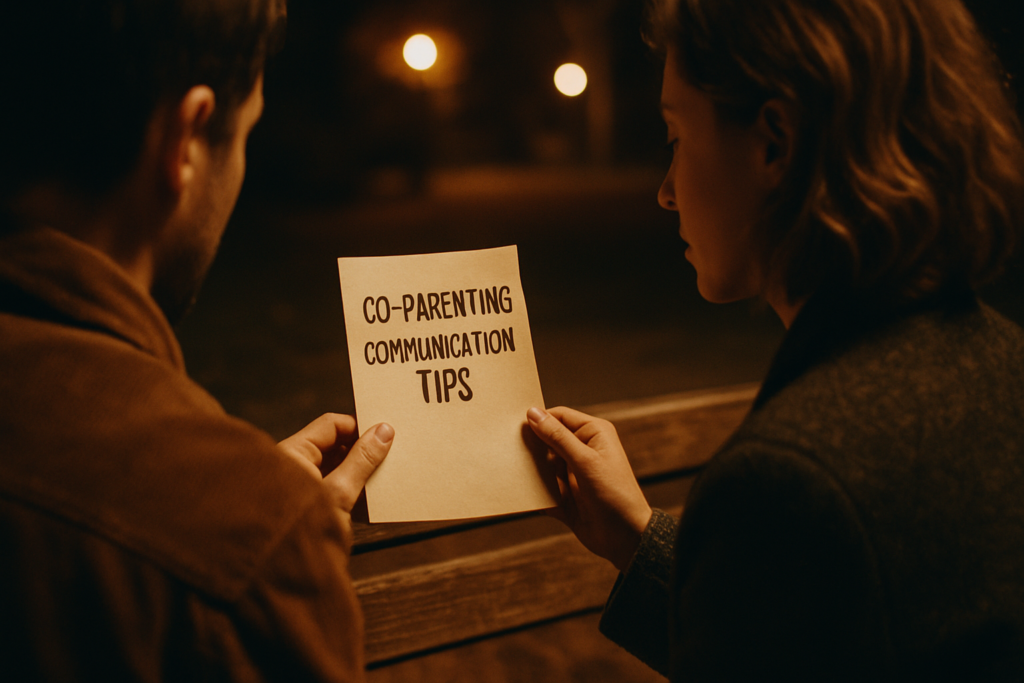Navigating co-parenting conflicts can be a challenging journey, but with the right strategies, it’s possible to reduce tension and stress for all involved. As a parent myself, I understand the complexities that can arise when trying to co-parent effectively amidst disagreements and differing viewpoints.
In this article, I’ll share valuable insights and practical tips on how to manage co-parenting conflicts with grace and resilience. From communication techniques to setting boundaries and fostering a positive co-parenting environment, I’ll delve into actionable strategies that can help you navigate conflicts constructively.
By implementing these approaches, you can create a more harmonious co-parenting dynamic that prioritizes the well-being of your children while minimizing stress and discord. Let’s explore effective ways to foster cooperation and understanding in the co-parenting journey.
Understanding Co-Parenting Conflicts
Reflecting on my own co-parenting journey, I’ve realized that understanding the root causes of conflicts is key to resolving them effectively. It’s crucial to recognize that disagreements may stem from differing parenting styles, communication breakdowns, unresolved emotional issues, or varying expectations.
By acknowledging these underlying factors, co-parents can address conflicts more constructively and work towards sustainable solutions.
Effective Communication Techniques
Effective communication is key to navigating co-parenting conflicts successfully. By employing specific techniques, co-parents can foster understanding and collaboration, minimizing tensions for the well-being of their children.
Active Listening Skills
Active listening is crucial in effective communication between co-parents. It involves fully concentrating, understanding, responding, and remembering what the other person is saying. By actively listening to each other’s perspectives without interruption, co-parents can show respect, validate feelings, and build trust, laying the groundwork for constructive dialogue and problem-solving.
Setting Boundaries
Establishing clear boundaries is essential in managing co-parenting conflicts. Boundaries define each parent’s roles, responsibilities, and expectations, reducing misunderstandings and conflicts. By openly discussing and setting boundaries regarding communication, decision-making, and personal space, co-parents can create a structured environment that promotes respect, cooperation, and healthy interactions.
Collaborative Decision-Making
Expanding on strategies for managing co-parenting conflicts involves embracing a collaborative approach known as collaborative decision-making. This method encourages co-parents to work together to make important decisions regarding their children’s upbringing.
It’s essential to acknowledge that major decisions involving children should ideally be made jointly to ensure consistency and unity in parenting.
- Shared Decision-Making: Collaborative decision-making starts with the fundamental principle of shared decision-making. Co-parents need to come together to discuss and decide on matters that significantly impact their children’s lives. By sharing the responsibility of decision-making, parents demonstrate respect for each other’s perspectives and strengthen their bond as co-parents.
- Transparency and Open Communication: Transparency and open communication are vital aspects of collaborative decision-making. Co-parents should be transparent about their thoughts, concerns, and preferences to facilitate honest discussions and reach mutual agreements. Open communication helps in avoiding misunderstandings and ensures that both parties are actively involved in the decision-making process.
- Seeking Common Ground: When faced with conflicting opinions, co-parents should strive to find common ground. Identifying shared values and priorities can help in reaching compromises that meet the best interests of the children. By focusing on common goals, co-parents can navigate disagreements more effectively and make decisions that benefit their children’s well-being.
- Professional Mediation: In situations where co-parents struggle to reach agreements, seeking the assistance of a professional mediator can be beneficial. A mediator acts as a neutral third party, helping facilitate discussions and find mutually acceptable solutions. Mediation can aid in managing conflicts constructively and guiding co-parents towards effective decision-making processes.
- Flexibility and Adaptability: Maintaining flexibility and adaptability is essential in collaborative decision-making. Co-parents should be willing to adjust their decisions based on changing circumstances and new information. Being open to revisiting and modifying decisions when necessary demonstrates a commitment to prioritizing the children’s evolving needs and well-being.
Collaborative decision-making fosters a sense of teamwork and partnership between co-parents, creating a conducive environment for resolving conflicts and making informed decisions that benefit the children. By embracing this approach, co-parents can navigate challenging situations with empathy, understanding, and a shared commitment to parenting together.
Managing Emotions in Conflict Situations
Discussing co-parenting conflicts involves navigating a myriad of emotions that can escalate tensions. Acknowledging and managing these emotions are crucial steps towards resolving conflicts effectively. By recognizing the emotional aspects of disagreements, co-parents can approach conflicts with a clearer perspective and work towards constructive solutions. Here are key strategies for managing emotions in conflict situations:
- Acknowledging Feelings: Recognize and accept your feelings without judgment. It’s normal to experience frustration, anger, or sadness in co-parenting conflicts.
- Emotional Regulation: Practice techniques to manage intense emotions, such as deep breathing, mindfulness, or taking a short break to recalibrate before addressing the conflict.
- Empathy and Understanding: Foster empathy towards your co-parent’s emotions and perspectives. Understanding their point of view can help de-escalate conflicts and promote mutual respect.
- Effective Communication: Use “I” statements to express your feelings and needs calmly without blaming the other party. Clear and respectful communication can prevent misunderstandings and defuse tensions.
- Conflict Resolution Skills: Develop conflict resolution skills such as active listening, compromise, and problem-solving to address differences constructively and find mutually beneficial solutions.
- Seeking Support: Don’t hesitate to seek support from a therapist, counselor, or support group to process your emotions and gain valuable insights on managing conflicts mindfully.
- Self-Care: Prioritize self-care practices to nurture your mental and emotional well-being. Engage in activities that bring you joy and relaxation to maintain emotional balance during challenging times.
By proactively managing emotions in conflict situations, co-parents can navigate disagreements with resilience and empathy, fostering a healthier co-parenting dynamic centered on the well-being of their children.
Seeking Professional Support
In resolving complex co-parenting conflicts, seeking professional support can be pivotal. Professional intervention offers a neutral and structured environment for navigating disagreements and finding mutually beneficial solutions.
- Mediation Services: Engaging a qualified mediator can facilitate constructive discussions between co-parents. A mediator helps to identify common ground, encourages effective communication, and guides the resolution process towards agreements that prioritize the children’s best interests.
- Therapeutic Counseling: Therapeutic counseling provides a safe space for co-parents to address underlying emotional issues and develop effective coping strategies. Through therapy, individuals can enhance their communication skills, manage conflicts more efficiently, and nurture a healthier co-parenting relationship.
- Parenting Coordinators: Parenting coordinators act as neutral third parties to assist co-parents in making decisions regarding their children. By offering guidance on parenting plans, resolving disputes, and promoting cooperation, parenting coordinators support the co-parenting journey and contribute to minimizing conflicts.
- Legal Consultation: Consulting a family law attorney can provide clarity on legal rights, obligations, and options available to co-parents. Legal professionals offer guidance on navigating custody agreements, addressing disputes, and ensuring that co-parenting arrangements align with legal requirements and best practices.
- Support Groups: Participating in co-parenting support groups can offer valuable insights, emotional support, and shared experiences from individuals facing similar challenges. Being part of a supportive community can validate feelings, provide coping strategies, and enhance resilience in managing co-parenting conflicts effectively.
Seeking professional support underscores a proactive approach to addressing co-parenting challenges, fostering cooperation, and prioritizing the well-being of the children involved. Professional interventions complement existing strategies and empower co-parents to navigate conflicts with confidence and clarity.




